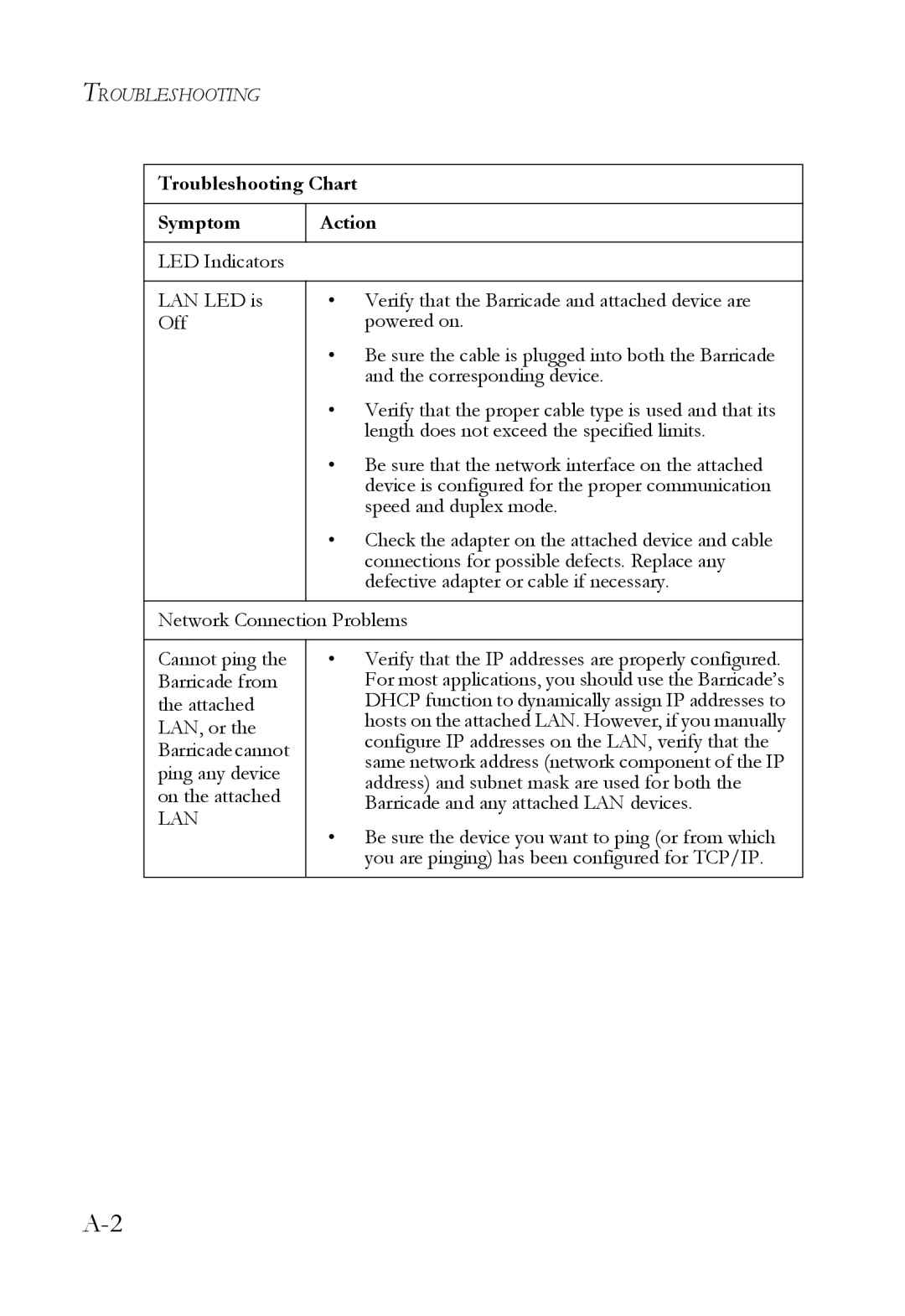
TROUBLESHOOTING
Troubleshooting Chart
Symptom | Action | |
|
| |
LED Indicators |
| |
|
| |
LAN LED is | • Verify that the Barricade and attached device are | |
Off | powered on. | |
| • Be sure the cable is plugged into both the Barricade | |
| and the corresponding device. | |
| • Verify that the proper cable type is used and that its | |
| length does not exceed the specified limits. | |
| • Be sure that the network interface on the attached | |
| device is configured for the proper communication | |
| speed and duplex mode. | |
| • Check the adapter on the attached device and cable | |
| connections for possible defects. Replace any | |
| defective adapter or cable if necessary. | |
|
| |
Network Connection Problems | ||
|
| |
Cannot ping the | • Verify that the IP addresses are properly configured. | |
Barricade from | For most applications, you should use the Barricade’s | |
the attached | DHCP function to dynamically assign IP addresses to | |
LAN, or the | hosts on the attached LAN. However, if you manually | |
configure IP addresses on the LAN, verify that the | ||
Barricade cannot | ||
same network address (network component of the IP | ||
ping any device | ||
address) and subnet mask are used for both the | ||
on the attached | ||
Barricade and any attached LAN devices. | ||
LAN | ||
• Be sure the device you want to ping (or from which | ||
| ||
| you are pinging) has been configured for TCP/IP. | |
|
| |
